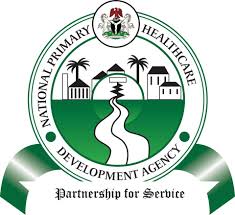By Iyemah David
The National Primary Health Care Development Agency (NPHCDA) says that there are no short-shelf doses of COVID-19 vaccine donations in the country.
The Executive Director, NPHCDA, Dr Faisal Shuaib, said this in Abuja, at the official handover of about 2.6 million doses of Johnson Johnson COVID-19 vaccines.
Shuaib said that the vaccines were now promptly shipped and distributed through the COVAX and AVAT facilities to reduce the risk of expiration.
The News Agency of Nigeria reports that the vaccines were donated by the Canadian High Commissioner to Nigeria, Amb Jamie Christoff.
Following the expiration of one million doses of COVID-19 vaccines in Nigeria, the Presidential Steering Committee on COVID-19 announced that the country would no longer accept vaccines with short shelf life.
The committee had said that such vaccines mounted undue pressure on health workers to administer them.
It also took the decision to destroy one million such vaccines publicly, to assure Nigerians that there was no intention to use them.
Shuaib said that donors now recognised the need to give away vaccines before their expiration dates.
According to him, they have also created a pathway for prompt shipment and distribution through the COVAX and AVAT facilities to curb the risk of expiration.
“There is now better coordination, and the COVID-19 vaccines in the country are not expired nor have short shelf lives.
“The Federal Government, through the NPHCDA and other partners, has continued to ensure that the country received vaccines with a long expiration date,” he said.
He said that 62 million vaccine doses were available in the country at the moment, adding that 40 million more were being expected.
While commending the Government of Canada for providing “the much-needed support,” Shuaib said that the donation was critical to helping the country ramp up its vaccination rollout process.
“Johnson & Johnson offers a single-dose opportunity for full vaccination, which means if you take one dose of the vaccine, you are regarded as a fully vaccinated person.
“However, we strongly recommend a booster dose after two months of taking the initial dose to strengthen your level of immunity against COVID-19.
“A second dose of the vaccine serves as the booster dose,” he said.
According to him, “we are in a full campaign mode in which COVID-19 vaccines are ready-made available in the health facilities and other designated places.
“They are also brought by our vaccination teams to your doorsteps. We are leveraging our polio eradication experience to fight COVID-19.
He expressed confidence that with the kind of support received from the Canadian Government, Nigeria would sooner than expected, be able to put COVID-19 behind.
On the SCALES 3.0 strategy, Shuaib said it offered opportunities for childhood vaccination and other Primary Health Care (PHC) services for Nigerians alongside the COVID-19 vaccination.
“Parents can take their eligible children for vaccination against polio, yellow fever, measles, and other vaccine-preventable childhood diseases in the same locations where the adults receive COVID-19 vaccines.
“Our mobile teams are also in possession of all these vaccines when they visit your homes.
“Please welcome them and present yourselves and your eligible children for vaccination as may be applicable,” he said.
Christoff, while donating the vaccines, said it was his first assignment as an Ambassador to Nigeria.
The Ambassador recalled that the Canadian Government had earlier donated more than 800,000 doses of the AstraZeneca vaccine to Nigeria.
He said that the donation was in fulfilment of his country’s commitment to supporting developing countries in ramping up vaccination against the COVID-19 pandemic.
According to him, in 2020, the world was faced with the challenge to develop an effective vaccine.
“In 2021, the challenges evolved to the production and distribution of the vaccines. Today in 2022, we need to put this vaccine within people’s reach,” he said.
The Federal Government has also designed a performance-based incentive to improve the uptake of COVID-19 vaccines and other PHC services in the states and the communities.




